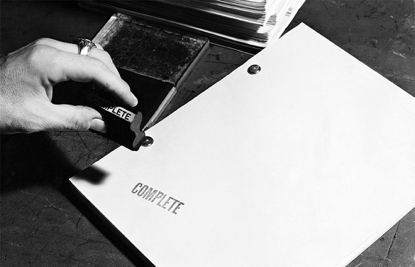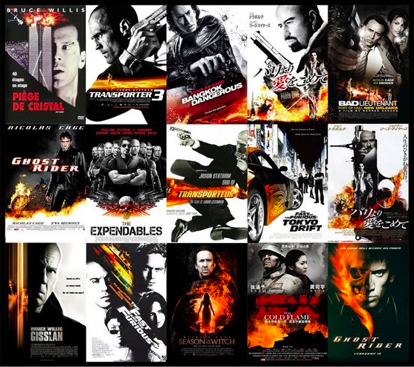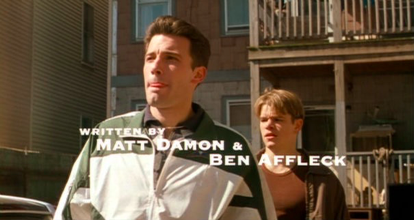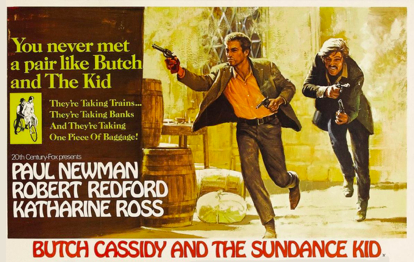Write first, sell later.
That’s the mantra of a spec scriptwriter.
The practice of writing a spec – or “speculative” – screenplay in the hopes that it’ll later become optioned has quite the precedent; and at certain points in cinema history, it even drove the entire industry.
“Butch Cassidy and the Sundance Kid” was one of the first instances of an original spec script sale, going for $40,000 in the 1960s. That’s equal to $2.7 million in today’s money.
“Good Will Hunting” earned $675,000 for then-unknown Matt Damon and Ben Affleck. “American Beauty” and “Thelma & Louise” picked up $250,000 and $500,000 respectively.
While the market for spec scripts is in a slight trough at the moment, it’s predicted to return in force — so it pays to get ahead of the game.
The Benefits of Working Spec
Spec scripts can be a quick way to a substantial payday. Generally, the script will be forwarded to a number of buyers who are likely to be interested (usually handled by an agent), and if all goes well a bidding war ensues. This is the best possible scenario, because the amounts of money slung around can get insane.

Widely circulating the script can be a double-edged sword, though; if it fails to garner interest, it’ll be on record as a script that the entire industry passed on. As you can imagine, it’s then very difficult to do anything with it at that point.
But not all is lost! If the script is good but just not quite marketable enough, it could lead on to some lucrative assignment work.
In short, even if your spec script doesn’t get optioned, there’s no finer way of getting your name out there. So let’s focus on how to maximize your chances of nailing it.
1. Presentation
Needless to say, it’s the substance of your script that’ll attract a sale. But it’s the presentation that can kill that sale before a studio even flips the cover.

Nothing screams “novice” more than a fancy binder, non-standard font, a writer’s Twitter handle and copyright notices all over the title page, and a multitude of pictures and artwork. Refrain from using anything other than 12-point courier and include only the title, your name, and email address on the title page.
If you really can’t quell the burning desire to jazz it up, print it on heavy weight paper. That’s as far from standard as you should venture.
2. It’s ALL About Page One
Conventional wisdom tells us we need to grab our readers within the first few pages of a script.
With a speculative script, it’s more like page one.
As mentioned in our previous post on Billy Wilder’s screenwriting tips, you not only need to “grab ‘em by the throat and not let go,” but you also need to do the following before you get to the bottom of the first page:
- Establish genre.
- Set the tone.
- Introduce your protagonist.
- Convey their problem and/or objective.
- Describe the time and place of the journey’s start.
Not only does all of that need to happen in the opening page, but also each and every element needs to be established in an enticing way.

How this is achieved entirely depends on your individual story, but it’s worth saving the above checklist and referring to it often. If you miss any of those beats, then revisit, rewrite and revise.
3. Don’t Chase Trends
Ask any producer what their biggest bugbear is when it comes to vetting unsolicited scripts, and it’s likely to be the weary feeling of getting yet another vampire script.
Replace vampire with zombie, superhero, young adult, space noir or whatever else might be the trend du jour.

There’s a big difference between keeping your eye on the market (which you should definitely do as a writer) and trying to rehash whatever was big last summer. There are two very good reasons why you shouldn’t do this: first, it will put you in a huge slush pile with competitors who are doing the same thing, and secondly, if something’s already big you’re probably too late to the game. Executives are planning for what’s going to be big in a couple of years (which is how long it takes to move from optioning a screenplay to getting it into a theater), not what was popular in the last couple of years.
Plus, chasing trends is soul destroying for most of us. And that brings us onto the last, and possibly most important, point:
4. Focus on Writing, Not Selling
Just because the end goal is to get the script optioned (ideally for a decent chunk of change) doesn’t mean that you should put the cart before the horse.
A good script is a sellable script, and everything you learned at screenwriting school is still true; avoid lengthy exposition, define clear character motives, establish strong tone and plot, and make sure your structure is tight.
Writing a great story and making sure it displays your heart and soul is its own reward, but also makes it infinitely more sellable by its very nature.

In short, never forget the spec script mantra:
Write first, sell later.
Hone your screenwriting skills with our variety of screenwriting degree programs, workshops, and courses. Taught by industry-leading professionals, our workshop-based programs give aspiring writers practical experience in script writing. Learn more about our programs on our Screenwriting School page.
